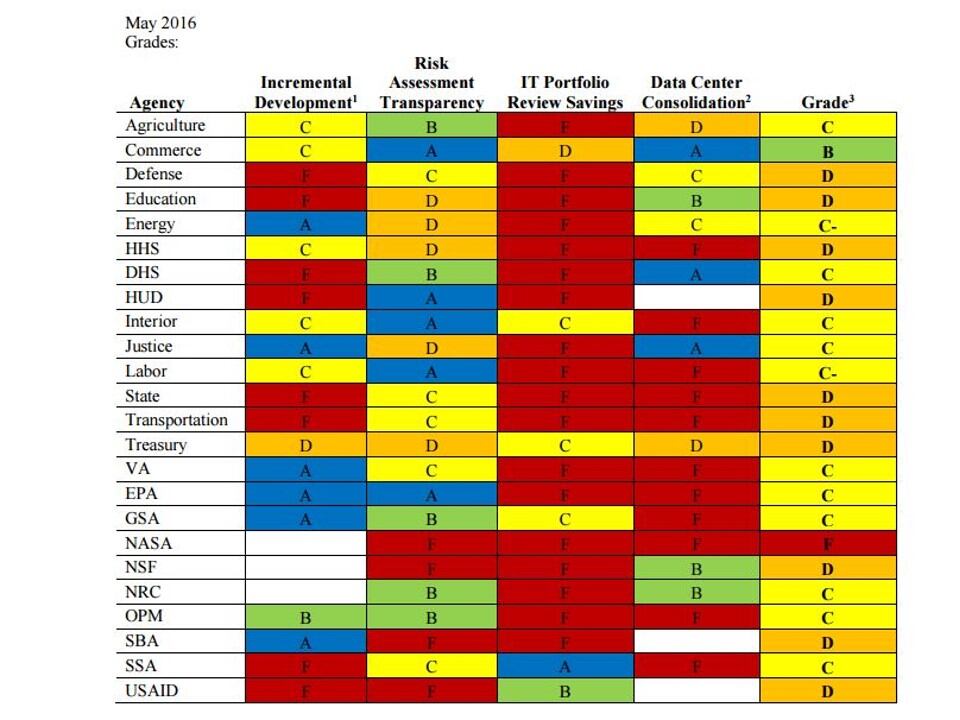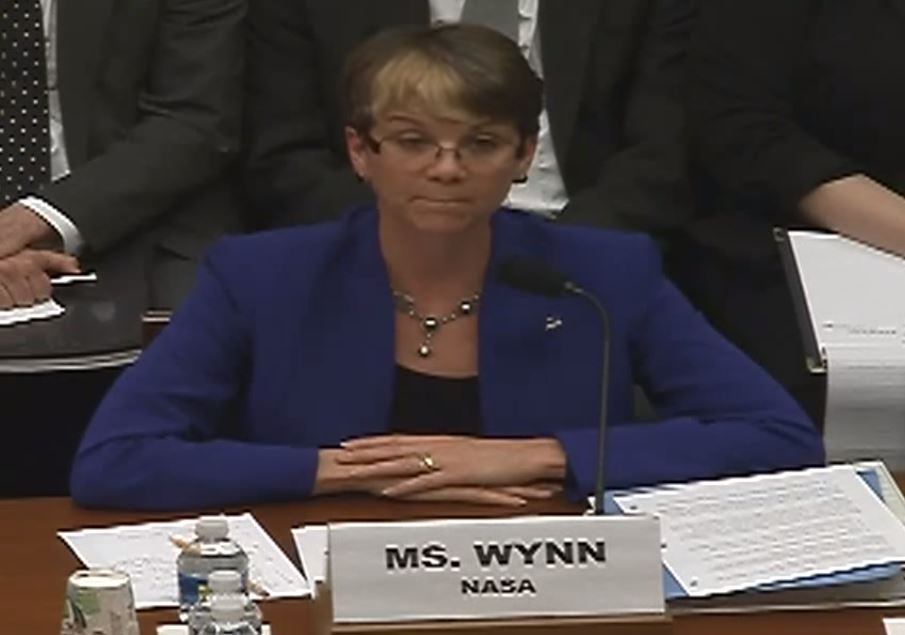Six months after Congress graded agencies on their adoption of the Federal IT Acquisition Reform Act (FITARA), the House Committee on Oversight and Government Reform released its second scorecard, which saw most agencies making slow progress.
FITARA — passed in December 2014 — was the first major IT governance legislation in almost two decades, giving department CIOs more authority over their counterparts at bureaus and components and codifying a number of best practices.
The Oversight Committee scored the 24 CFO Act agencies on four of those best practices, giving each a letter grade for incremental development, risk assessment transparency, savings discovered through the IT Portfolio Review process and progress consolidating data centers.
Overall, the final grades on the May scorecard include zero As, one B, 12 Cs, 10 Ds and one F. To compare, the November scorecard had zero As, two Bs, five Cs, 14 Ds and three Fs.
Month-over-month, seven agencies improved their score, one dropped a grade and 16 remained the same, though almost all had some variation in individual metrics.
The only F on the May scorecard was given to NASA, which failed on three metrics and was unable to provide data on its incremental development practices.
"Puzzling that the government agency with arguably the most innovative and technologically demanding mission continues to receive the lowest marks on the scorecard," Rep. Gerry Connolly, D-Va., one of the authors of FITARA, said during the May 18 hearing.
"That's not something we're proud of," said NASA CIO Renee Wynn, assuring the committee that changes are underway at the space agency.
Rep. Will Hurd, R-Texas, chairman of the IT subcommittee, noted that Wynn inherited the problems in NASA's IT structure, which the CIO thanked him for. Wynn said the agency approved a transformation plan on March 31 that will change the governance structure within the IT shop and align the agency more closely with FITARA.
"With our business services assessment, we are on track to head toward a C. As long as we stay on that particular plan that the agency approved," she said. "I've got that in place now, so it's time for me and my team to capture that moment and get through the implementation."

Two agencies with failing grades on the initial scorecard — the departments of Education and Energy — were able to bring their scores up to a passing D and C-minus, respectively, making progress in risk assessment transparency. Energy also brought its grade for incremental development from a F in November to an A on the May scorecard.
Not only did Energy raise its grade, the agency was also commended for showing the most progress since November's rankings.
The Department of Commerce kept its place at the top, maintaining a B grade since November's scorecard. Commerce was the only agency to score above a C in the latest rankings
The General Services Administration — which received a B in November — slipped to a C grade on the new scorecard. While the agency showed progress in both incremental development and risk assessment transparency, there were significant drops in scores for IT portfolio review savings — down from an A to a C — and data center consolidation — down from a B to a F.
During his opening comments, Connelly reiterated a point he made during the first scorecard hearing in November: These grades are not meant to shame agencies.
"This is not intended to be a scarlet letter on an agency's back," he said, asserting that the scores are meant as a benchmark to show agencies where they need to improve.
While the rest of the Committee agreed, that fact doesn't lessen the importance of FITARA or the scorecard exercise.
"The federal government's IT acquisition process isn't just an inefficient use of taxpayers' money, it's also a security risk," said Rep. Robin Kelly, D-Ill., ranking member of the IT subcommittee. "Too many agencies are still relying on outdated legacy systems … FITARA not only helps federal agencies save money in IT procurement, it also helps them make smarter IT investments."
Aaron Boyd is an awarding-winning journalist currently serving as editor of Federal Times — a Washington, D.C. institution covering federal workforce and contracting for more than 50 years — and Fifth Domain — a news and information hub focused on cybersecurity and cyberwar from a civilian, military and international perspective.





